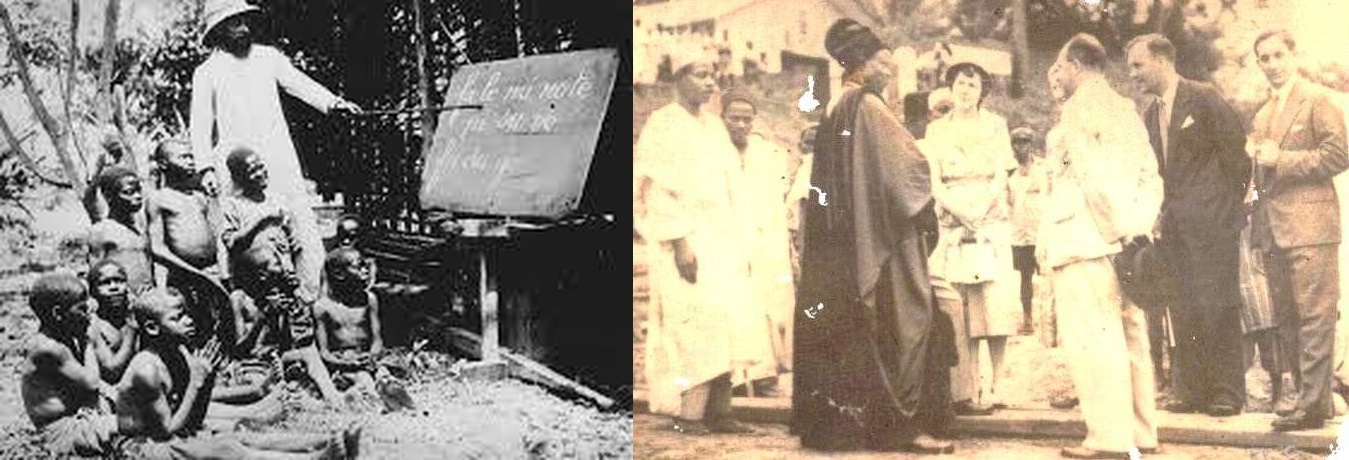Co-responsibility in a synodal church means uniting leaders and laity to embrace their shared mission. In the African context, it calls for an authentic expression of faith, where every member plays a vital role in shaping a Church that truly reflects its people and values.
During the 13th Synodal Palaver conversation organized by Pactpan in collaboration with COMSAM, John Cardinal Onaiyekan, Archbishop Emeritus of Abuja, spoke with a heart full of conviction and a sense of urgency. Although he expressed regret for not preparing a formal text, he embraced the informal nature of the African palaver. In his opening, he said, “In the spirit of the African palaver, I offer these reflections, hoping they will resonate deeply with all of you.”
The Church in Africa: A Journey of Faith and Growth
 Cardinal Onaiyekan reflected on the development of the Church in Africa with a deep sense of pride and humility. He highlighted the Church’s extraordinary journey from the early days of missionary work to the post-Vatican II era, emphasizing co-responsibility in a Synodal Church. He expressed how the Holy Spirit has been at work in local Churches and pointed out how the Church in Africa, once nurtured by foreign missionaries, has grown into a vibrant, independent entity fully capable of contributing to the global Church.
Cardinal Onaiyekan reflected on the development of the Church in Africa with a deep sense of pride and humility. He highlighted the Church’s extraordinary journey from the early days of missionary work to the post-Vatican II era, emphasizing co-responsibility in a Synodal Church. He expressed how the Holy Spirit has been at work in local Churches and pointed out how the Church in Africa, once nurtured by foreign missionaries, has grown into a vibrant, independent entity fully capable of contributing to the global Church.
It’s important to remember the impact of Pope Paul VI’s words in Kampala in 1969. Cardinal Onaiyekan recalled how those words, “You can, and you must have an African Christianity,” deeply resonated with him and many others. These words continue to influence his vision for the Church today. Cardinal Onaiyekan emphasized that this call marked the beginning of a new era, one where Africa would shape its own Christian identity. He expressed a strong commitment to this task, highlighting the creation of the Zairean Rite and the significant roles played by African bishops such as Cardinals Malula and Monsengwo.
Co-Responsibility in Pastoral Ministries: A Call to Action
Transitioning to the concept of co-responsibility in a Synodal Church, Cardinal Onaiyekan’s tone became one of challenge and encouragement. He emphasized that co-responsibility in ministries means everyone working together to advance the Church’s mission. Drawing from his 80 years of life experience, 55 years as a priest, and 42 years as a bishop, he shared the profound insight that every member of the Church, from the laity to the clergy, has a role to play. “Each of us has a responsibility,” he urged, “but we do not all have the same status.” He pointed out that co-responsibility is not confined to ordained ministry. “The lay faithful must see their activities in the world as service to the Kingdom of God,” Cardinal Onaiyekan passionately declared. He called on African Catholic politicians, professionals, and business people to embrace their roles as the “light of the world and salt of the earth.”
Leadership in the Church: A Service, Not a Privilege
In discussing co-responsibility and leadership within the Synodal Church, Cardinal Onaiyekan emphasized the profound sense of duty that comes with leadership. He made it clear that not everyone is destined for leadership, stating, “The body cannot all be the head.” However, he stressed that true leadership, as taught by Jesus, is about servanthood. He passionately remarked, “When leaders serve their people, there is less struggle for power,” expressing regret for the power struggles prevalent in many African nations, including among Catholics.
The Cardinal issued a powerful call for leaders at all levels of the Church to embrace a model of servant leadership. “From children’s groups to episcopal conferences, leadership must be about serving the common good,” he asserted. His call for humility and service deeply resonated, particularly in a continent where power is often misused.
Co-Responsibility at the Continental Level: A United Church Family
In concluding his reflections, Cardinal Onaiyekan turned his attention to the continental level where co-responsibility in a Synodal Church plays a crucial role. With a sense of pride, he spoke of SECAM’s efforts to foster collaboration among African Churches. “We are linked by geography, culture, and shared values,” he said, emphasizing the importance of unity in addressing common challenges.
Cardinal Onaiyekan’s closing words were both a reflection and a call to action. “Our Church in Africa has come of age,” he declared, urging all members to embrace their roles in building the Kingdom of God. His message was clear: the future of the Church in Africa depends on our collective commitment to co-responsibility, both within our local communities and across the continent.
To Know More, Read The Summaries Of The Past Conversations
-
Facebook
-
Twitter
-
Linkedin
-
Whatsapp






